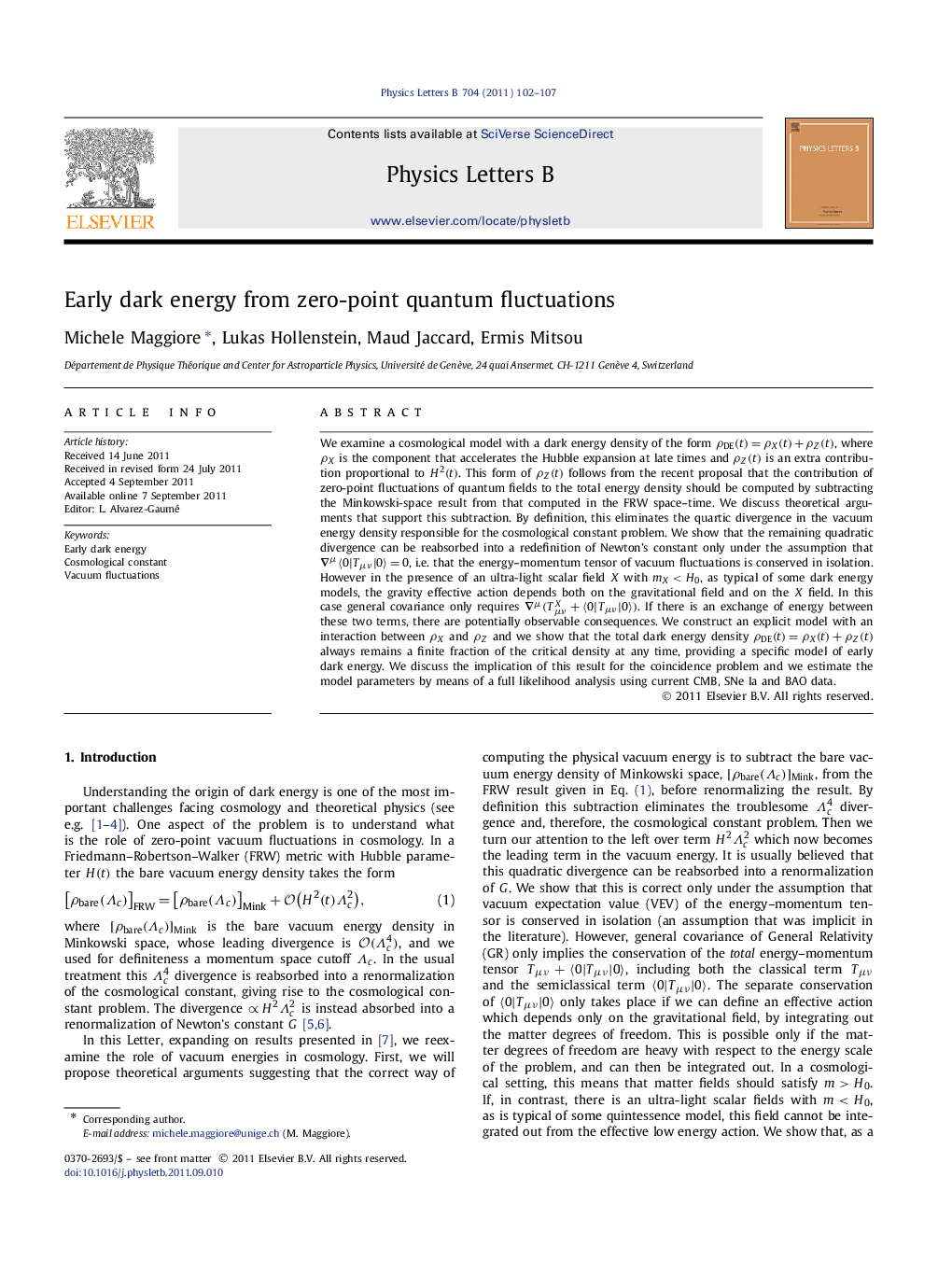| کد مقاله | کد نشریه | سال انتشار | مقاله انگلیسی | نسخه تمام متن |
|---|---|---|---|---|
| 10721901 | 1033645 | 2011 | 6 صفحه PDF | دانلود رایگان |
عنوان انگلیسی مقاله ISI
Early dark energy from zero-point quantum fluctuations
دانلود مقاله + سفارش ترجمه
دانلود مقاله ISI انگلیسی
رایگان برای ایرانیان
موضوعات مرتبط
مهندسی و علوم پایه
فیزیک و نجوم
فیزیک هسته ای و انرژی بالا
پیش نمایش صفحه اول مقاله

چکیده انگلیسی
We examine a cosmological model with a dark energy density of the form ÏDE(t)=ÏX(t)+ÏZ(t), where ÏX is the component that accelerates the Hubble expansion at late times and ÏZ(t) is an extra contribution proportional to H2(t). This form of ÏZ(t) follows from the recent proposal that the contribution of zero-point fluctuations of quantum fields to the total energy density should be computed by subtracting the Minkowski-space result from that computed in the FRW space-time. We discuss theoretical arguments that support this subtraction. By definition, this eliminates the quartic divergence in the vacuum energy density responsible for the cosmological constant problem. We show that the remaining quadratic divergence can be reabsorbed into a redefinition of Newtonʼs constant only under the assumption that âμã0|Tμν|0ã=0, i.e. that the energy-momentum tensor of vacuum fluctuations is conserved in isolation. However in the presence of an ultra-light scalar field X with mX
ناشر
Database: Elsevier - ScienceDirect (ساینس دایرکت)
Journal: Physics Letters B - Volume 704, Issue 3, 13 October 2011, Pages 102-107
Journal: Physics Letters B - Volume 704, Issue 3, 13 October 2011, Pages 102-107
نویسندگان
Michele Maggiore, Lukas Hollenstein, Maud Jaccard, Ermis Mitsou,